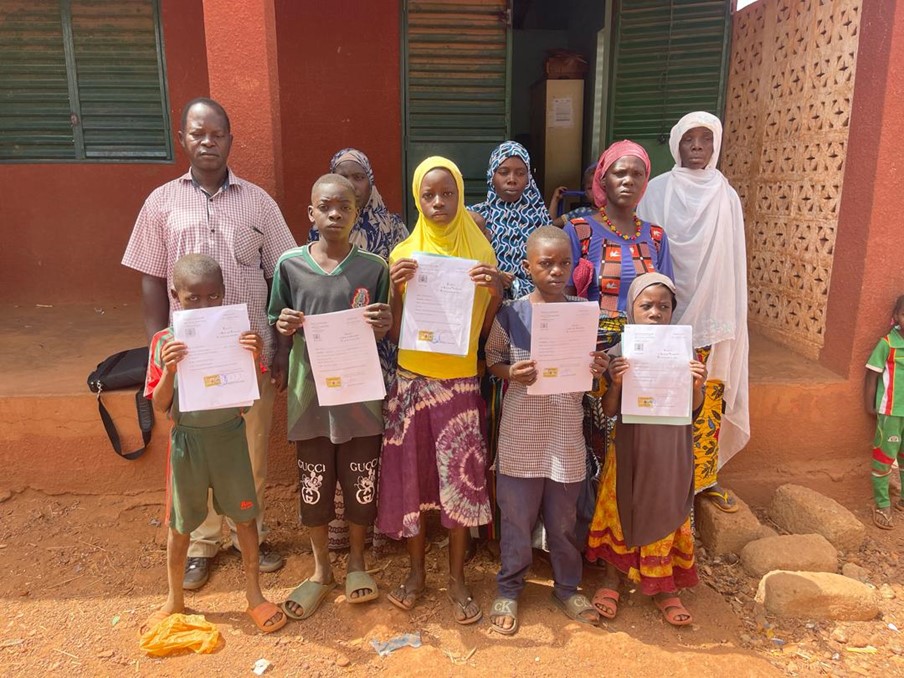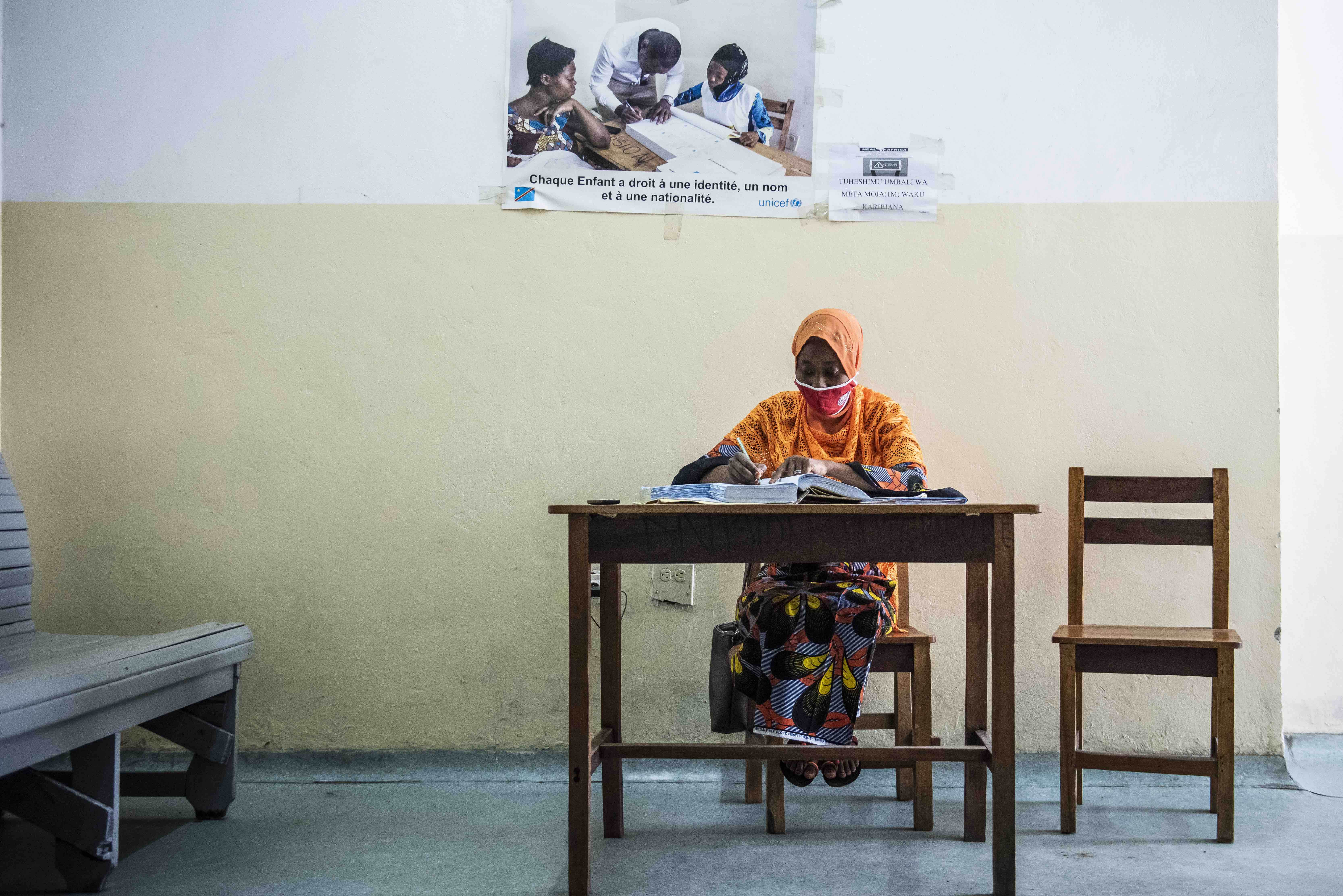
Civil registration for children in Burkina Faso – Phase II
Protection - Civil status for all
Contribute to improving civil registration systems in Burkina Faso to guarantee the fundamental rights of children without birth certificates.
237 million children under 5 years of age have no birth certificate, 166 million are not recorded as civilians.
The International Convention on the Rights of the Child, in its article 7, provides that: “the child is recorded at birth and procures from this moment the right to a name, the right to acquire a nationality and, insofar as possible, the right to know its parents and be raised by them.”
However, in reality, “ghost” children are counted in the millions!
An undeclared child is extremely vulnerable in the face of trafficking and abuses of all kinds: prostitution, organ trafficking, enlistment in armed groups, forced labour, child marriage… Without a legal identity, they cannot enjoy any legal protection.
Civil-status registration allows the child to be recognised as a subject as of right, to enjoy a legal personality, and guarantees him or her the protection of their civil, political, economic, social, and cultural rights.
Simply by being endowed with a birth certificate, they can access intermediate school and, once they reach adulthood, they can marry, register their own children, work officially, and even gain access to the banking system… all of which is currently impossible without any legal existence!

The “Civil Status for All” programme is based on 3 major objectives for the defence of the right to identity of every child worldwide. AMADE’s action therefore concerns practical projects, actionable methods, and technological means that have proved their efficacy.
1. Raising awareness among the local population and communities regarding the importance and stakes involved in registration from birth
National legislations provide a time limit during which the registration of the birth is free after giving birth. Despite this gratuity, it must be concluded that these registrations are not automatic.
Often, mothers are unaware of the importance of declaring their children. Registration or rectification fees, costs of transport to the civil-status registry office are just some of the deterrents for populations affected by poverty.
Informing parents, village chiefs, cultural and religious leaders regarding the importance of birth declarations and training civil-status agents are some of the essential actions vital for increasing registration rates and raising awareness of its fundamental value.

2. Developing international advocacy in favour of universal registration of births
27 countries worldwide prohibit women from transferring their nationality to their children, due to numerous cases of statelessness. Inadequate and obsolete legal frameworks, coupled with limited public budgets allocated to the systems of registration of births considerably increase the amount of “invisible” children.
Besides structural causes, traditional practices can also have a bearing on the declaration rate of births. In certain cultures, the child’s name is only divulged on the occasion of their baptism, occurring on the seventh day after his or her birth.
AMADE is committed to shifting public policy in favour of a system of registration better adapted to the socioeconomic and cultural context of various countries.
3. Supporting local initiatives in favour of the declaration of births and rectification of birth certificates
Several initiatives contribute to the automation of registration and the increase in the number of children with declared civil status. The interoperability between health centres and civil-status offices has also emerged as one of the main factors of significant change, reinforcing the automatic declaration of births within the legal timeframe provided.
Once a civil-status office opens in a maternity ward, the mothers are able to directly declare their children after giving birth and don’t need to travel. Post-natal visits also constitute an opportunity to carry out this declaration if it wasn’t done after the birth.
Similarly, setting up mobile court hearings decentralises the law, taking it into villages to register children en masse for civil status over several days, and to regularise the civil status of undeclared children within legal timeframes.
These sessions are effective, since they enable birth certificates to be automatically provided to children, which they are required to have to attend intermediate school at no additional cost.


Contribute to improving civil registration systems in Burkina Faso to guarantee the fundamental rights of children without birth certificates.

1. Build the capacity of local and national players to modernize civil registry services.
2. Increase the birth registration rate in the commune of Rumonge through the interoperability of civil registry services and health structures.
3. Document the civil status situation in the commune of Rumonge and contribute to advocacy with the relevant authorities.